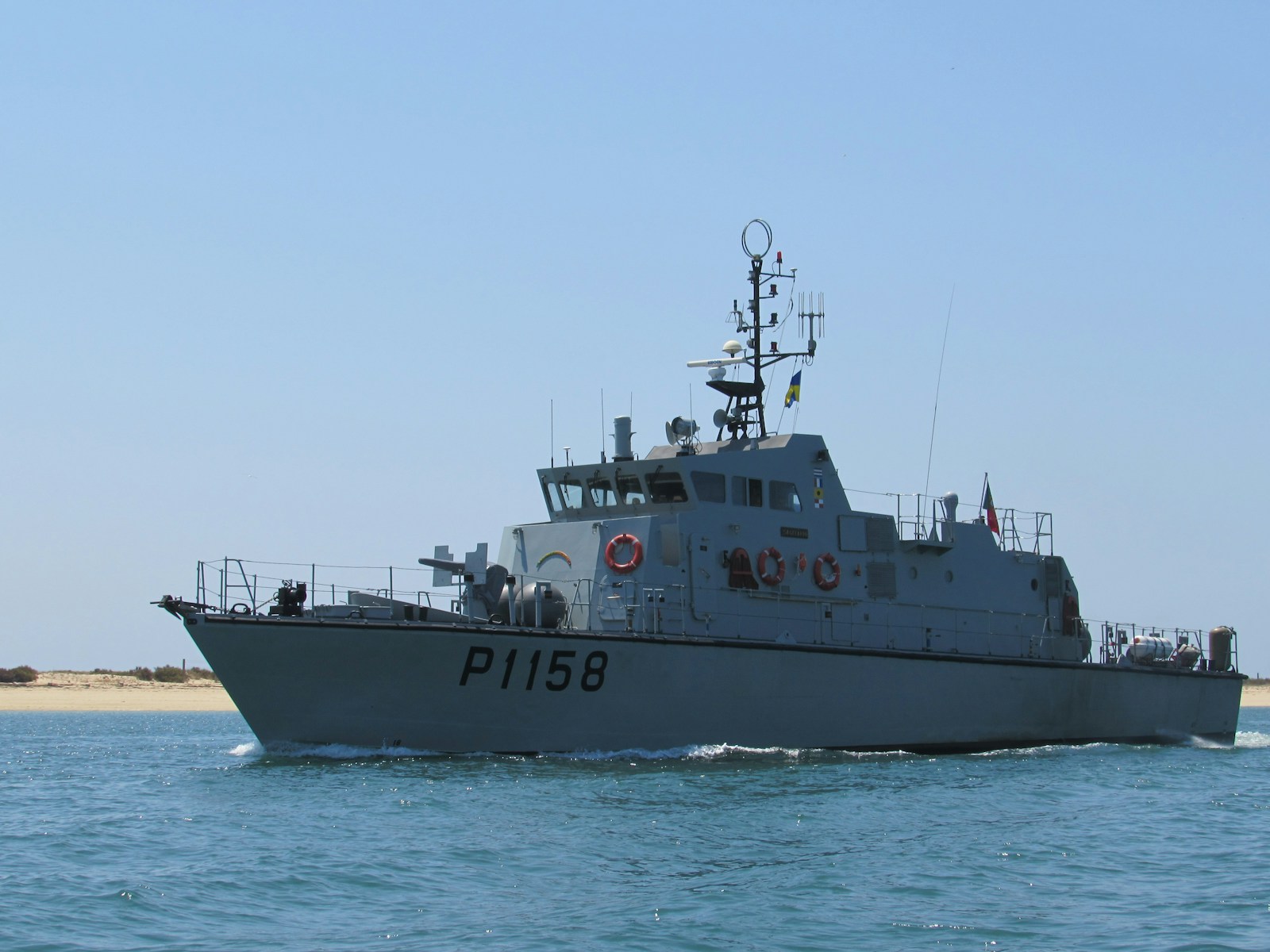
buque de guerra

warship
The Spanish term 'buque de guerra' translates to 'warship' in English. It is used to describe a naval ship that is built and primarily intended for combat. Warships are usually built in a completely different way from merchant ships. They are generally fast and heavily armed, but also easy to maneuver. Key features of a warship include weapons, armor, and aircrafts. As well as this, they provide support for amphibious operations and serve as platforms for airborne operations.
Example sentences using: buque de guerra
El buque de guerra se dirige hacia el horizonte.

The warship is heading towards the horizon.
This sentence describes a scene where a warship is moving in the direction of the horizon. It can be used when discussing sea navigation or military activities. The key phrase 'buque de guerra' is used at the beginning of the sentence and the whole phrase is in present tense, commonly seen in descriptions.
El capitán del buque de guerra está preparado para la batalla.

The captain of the warship is prepared for battle.
This sentence describes a situation where the captain of a warship is ready for combat. It's useful in scenarios involving discussions about military activities, specifically naval combat. The phrase 'buque de guerra' is in the middle of the sentence and the sentence is in present tense, indicating a current state of readiness.
En el puerto, atracó un imponente buque de guerra.

An imposing warship docked at the port.
This sentence narrates an event where a massive warship has arrived at a port. It can be used in narrations or descriptions involving sea travel and naval activities. The phrase 'buque de guerra' is used towards the end of the sentence, and the sentence is in past tense, suggesting the event has already occurred.